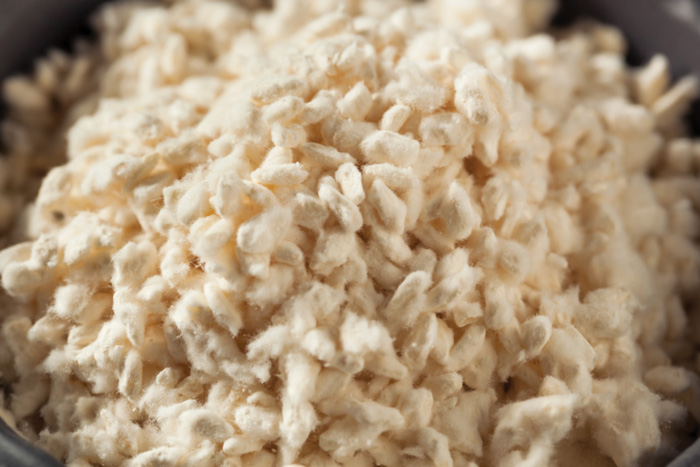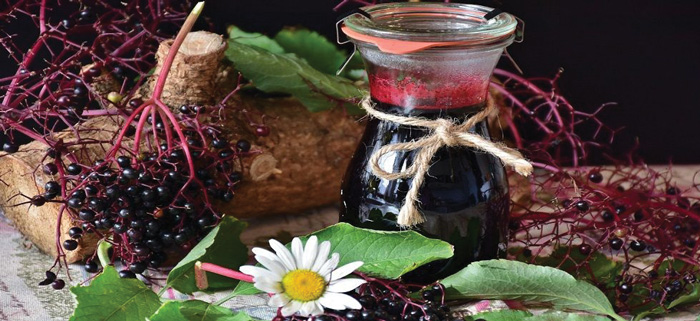Focus on Immune Health
NUTRACEUTICALS
Immunity has been a top health concern among consumers for the past several years. With the current COVID-19 pandemic, interest in foods, beverages, and supplements that benefit immune health has steadily grown.
“According to Kerry’s global consumer survey on digestive and immune health, conducted in 2019, immune system support was the most common reason globally for consumers to buy healthy lifestyle products,” says John Quilter, vice president and general manager, Kerry. “However, COVID has accelerated consumer interest in the role of nutrition in immunity, with a 670% increase in Google searches for ‘food’ and ‘immune system’ between February and March” (Google Trends). Furthermore, a recent consumer survey from FMCG Gurus revealed that 72% of American consumers are now more likely to pay attention to nutritional benefits when purchasing food and drink, and 50% have increasingly turned to food to boost their immune health (FMCG Gurus Covid-19 Survey, July 2020).”
Dairy is one of the fastest-growing categories for immune health, according to a recent webinar hosted by Innova Market Insights (2020). Another growth category is hot beverages, especially tea. Herbal tea products in particular contain ingredients that are high in nutrients, such as vitamin C, and other healthful ingredients, such as ginger. Innova also said that innovation in plant-based immunity products is emerging, citing a 31%-plus average annual growth (CAGR 2015–2019). While supplements lead the way in plant-based immune products, sports nutrition and soft drinks are other key categories for new product innovation. An example cited is Once Upon a Farm Dairy-Free Protein Smoothies. Claims include added probiotics for gut and immune health, and 6 g plant protein from pumpkin seeds.
Healthy lifestyles and balanced, nutritious meals are key for overall health and wellness, but there are some nutrients that play a role in the immune system. The Academy of Nutrition and Dietetics indicates that the following nutrients occur in a variety of foods: beta-carotene, vitamin C, vitamin D, zinc, probiotics, and protein (AND 2018). Most recently, Iddir et al. (2020) highlighted the importance of an optimal status of relevant nutrients to effectively reduce inflammation and oxidative stress, thereby strengthening the immune system during the COVID-19 crisis. The authors mentioned nutrients like protein, zinc, vitamin C, vitamin E, vitamin D, and dietary fiber.
Here’s a look at some of the ingredients that consumers are looking for in immune health products.
Plant-Based Immunity
Vitamins and minerals will always be popular for immune health, particularly vitamin C, zinc, and vitamin D. While some vitamins and minerals function as antioxidants, others help reduce inflammation and play roles in antibody production. With the growing plant-based eating and clean label trends, natural sources of vitamins and minerals will be sought after. Botanicals such as acerola and citrus fruits, for example, are popular for their vitamin C content. In addition, ingredient suppliers are developing unique plant-based zinc and vitamin D to meet these trends.
Ultimine zinc (Naturex, part of Givaudan), for example, is a fermented whole food zinc supplement made from koji, a culture used to make fermented products such as soy sauce, miso, and sake. Ultimine zinc is produced using a patented fermentation process, during which koji culture biomass incorporates food-grade zinc. The resulting product is a dried biomass, rich in protein, that naturally encapsulates the zinc. The product delivers an 11 mg dose in a 200 mg serving. In December 2019, Ultimine zinc as well as other Ultimine mineral products received GRAS status for legal use in a wide range of applications, including beverages marketed as functional drinks, fruit juice, breakfast cereals and bars, meat substitutes, rice, and pasta.
Earthlight Whole Food Vitamin D (PLT Health) is produced from mushrooms via a patented process, by exposing white button and portobello mushrooms to ultraviolet (UV) light. The company explains that much like the human body, mushrooms produce vitamin D when exposed to UV light. Earthlight is a whole-food ingredient that is minimally processed without any extract solvents. The ingredient offers consumer-friendly labeling as “mushroom powder” or “mushroom powder Vitamin D.” This non-GMO ingredient delivers 1,000 µg (40,000 IU) of vitamin D per gram of ingredient. Earthlight Vitamin D received FDA Food Additive Petition approval for the U.S. market, addressing its use in a broad range of food and beverage products, from breakfast cereals and bakery products to juices and meal replacements. The approval also covers use in five food categories that until now were not addressed in the Code of Federal Regulations for vitamin D fortification: fruit smoothies, soups and soup mixes, vegetable juices, extruded vegetable snacks, and plant-based meat analogues.
Elderberry is a botanical that is enjoying increased attention for its innate immune health benefits. Elderberry is packed with particular polyphenols called flavonoids, which have been tied to its positive antiviral and immune support outcomes, explains Melanie Bush, director of science, Artemis International. “Of particular importance is its unique and potent anthocyanin content, which gives it its rich black color. In addition to the anthocyanin actives, high molecular weight compounds found in black elderberry have also been tied to its immune-supporting and antiviral activity. One possible mechanism of action of these actives involves blocking attachment of viruses to cells, thereby hindering replication,” she says.
A key study demonstrating the immune support properties of black elderberry was conducted in 2016 (Tiralongo et al. 2016). This human clinical trial included 312 long-haul flight passengers and concluded that supplementation with Haschberg European Black Elderberry extract significantly reduced the duration and severity of cold viruses. “This study was also highlighted in a subsequent meta-analysis (Hawkins et al. 2019) that analyzed all of the relevant human trials with elderberry and concluded that ‘supplementation with a standardized elderberry extract is significantly effective at reducing the total duration and severity of upper respiratory symptoms, as compared to a placebo group.’ This conclusion applied to both influenza (flu) as well as the common cold,” says Bush.
Probiotics
Probiotics are sought after for immune health as consumers understand that there is a relationship between overall health and gut health. “Our consumer research showed strong recognition of the benefits of probiotics,” notes Quilter. “Among American consumers who are aware of probiotics, 79% perceived probiotics to provide digestive health benefits, indicating a strong understanding of a link between probiotics and gut health.”
Research continues to support the use of specific probiotics to promote immune health. Ganeden BC30 (Bacillus coagulans GBI-30, 6086) (Kerry), for example, is a spore-forming probiotic. A 2019 study showed that it has a beneficial effect on gastrointestinal symptoms (GI) and upper respiratory tract infection (URTI) symptoms in children (Anaya-Loyola et al. 2019). The study data reported that Ganeden BC30 may have the ability to modulate the immune response, based on beneficial effects on URTI and GI symptoms.
Chr. Hansen offers Lactobacillus paracasei, subsp. paracasei (Lactobacillus casei 431 strain), which works by activating immune cells, increasing the production of immune cell precursors and increasing the secretion of antibodies. The strain has been investigated within immune health in four randomized, double-blind, placebo-controlled trials of healthy adults, together including more than 1,300 subjects (De Vrese et al. 2005, Jespersen et al. 2015, Rizzardini et al. 2012, Trachootham et al. 2017). Three of the four studies found that compared to placebo, the L. casei 431–supplemented groups had a stronger immune response when exposed to challenge. In the fourth study, results of a secondary endpoint showed that the L. casei 431–supplemented group had an average reduction in the duration of respiratory tract discomforts of three days during a three-week period compared to placebo (Jespersen et al. 2015).
DuPont Nutrition & Health offers a portfolio of HOWARU Protect Probiotics optimized to meet specific consumer needs to help maintain natural immune defenses. The range includes HOWARU Earlylife, Kids, Adult, Senior, and Sport. HOWARU Protect Sport, for example, is clinically shown to help physically active adults stay healthy, allowing more time for exercise. The product is comprised of Bifidobacterium lactis Bi-07 and Lactobacillus acidophilus NCFM. West el al. (2014) demonstrated that it helped reduce the risk of upper respiratory tract infections in healthy, physically active adults.
Prebiotics
Prebiotics are closely associated with probiotics in helping immunity as they feed and stimulate the growth of beneficial bacteria in the gut. Prebiotics include fructooligosaccharides, inulin, and galactooligosaccharides. Clasado offers Bimuno, a composition of galactooligosaccharides whose chemical structures ensure its specificity for bifidobacteria. The nondigestible prebiotic passes through the upper gastrointestinal tract until it reaches the large intestine, where it is utilized by beneficial bacteria (Gosalbez and Harthoorn). Vulevic et al. (2015) demonstrated that Bimuno positively affected the microbiota and some markers of immune function associated with aging in a group of 40 elderly volunteers (aged 65 to 80 years). Prebiotic consumption led to significant increases in bacteroides and bifidobacteria. Higher natural killer-cell activity and C-reactive protein were also observed.
Davani-Davari et al. (2019) reviewed prebiotics and their role in well-being. Prebiotics can feed the intestinal microbiota, and their degradation products are short-chain fatty acids that are released into blood circulation, consequently affecting not only the gastrointestinal tract but also other organs. The authors state that considering the health benefits of prebiotics and their safety as well as their production and storage advantages compared to probiotics, they seem to be candidates for promoting human health as a replacement for or in association with probiotics. They also stated that accurately designed long-term clinical trials and genomics investigations are needed to confirm the health claims.
Yeast Beta-Glucan
“Consumers have a growing awareness of the ability for yeast beta-glucans to help support immune health. Our consumer research from 2019 revealed that in many countries around the world, as many as a third of all consumers surveyed were aware of the immune-supporting benefits of yeast beta-glucans,” says Quilter. He stresses that it is notable that not all beta-glucans can provide the same immune support advantages. “The strain, as well as the method of beta-glucan extraction, can impact its benefits for the immune system. It is inaccurate to generalize results based on research conducted on a different strain or nonidentical ingredient,” he says.
Most recently, De Marco Castro et al. (2020) reviewed the role of beta-glucans in immune health and highlighted their benefits for groups of healthy populations that have increased risk of respiratory infections. The review focused on their mechanism of action as immunomodulators, exploring the theory that they “train” the body’s immune cells, triggering changes that help fight off pathogens.
Kerry offers a proprietary baker’s yeast beta 1,3/1,6 glucan that has been shown to help strengthen the immune system. Meng et al. (2016) observed that children supplementing with Wellmune were significantly healthier during the cold and flu season. Wellmune was reported to decrease the incidence and duration of common colds by 66% compared to a placebo group.
REFERENCES
AND. 2018. “How to Keep Your Immune System Healthy.” Academy of Nutrition and Dietetics. https://www.eatright.org/health/wellness/preventing-illness/how-to-keep-your-immune-system-healthy.
Anaya-Loyola, M. A., J. A. Enciso-Moreno, and J. E. López-Ramos, et al. 2019. “Bacillus coagulans GBI-30, 6068 Decreases Upper Respiratory and Gastrointestinal Tract Symptoms in Healthy Mexican Scholar-Aged Children by Modulating Immune-related Proteins.” Food Res. Int. 125: 108567.
Davani-Davari, D., M. Negahdaripour, and I. Karimzadeh, et al. 2019. “Prebiotics: Definition, Types, Sources, Mechanisms, and Clinical Applications.” Foods 8(3): 92.
De Marco Castro, E., P. C. Calder, and H. M. Roche. 2020. “Beta-1,3/1,6-Glucans and Immunity: State of the Art and Future Directions.” Mol. Nutr. Food Res. https://doi.org/10.1002/mnfr.201901071.
De Vrese, M., P. Rautenberg, and C. Laue, et al. 2005. “Probiotic Bacteria Stimulate Virus-Specific Neutralizing Antibodies Following a Booster Polio Vaccination.” Eur. J. Nutr. 44(7): 406–413.
Gosalbez, L. and L. Harthoorn. “Understanding Bimuno and Immunity.” Clasado Biosciences. White paper. https://clasado.com/wp-content/uploads/2020/05/Understanding-Bimuno-and-Immunity.pdf.
Hawkins, J., C. Baker, and L. Cherry, et al. 2019. “Black Elderberry (Sambucus nigra) Supplementation Effectively Treats Upper Respiratory Symptoms: A Meta-analysis of Randomized, Controlled Clinical Trials.” Compl. Ther. Med. 42: 361–365.
Iddir, M., A. Brito, and G. Dingeo, et al. 2020. “Strengthening the Immune System and Reducing Inflammation and Oxidative Stress through Diet and Nutrition: Considerations During the COVID-19 Crisis.” Nutrients 12(6): 1562.
Innova Market Insights. 2020. “Immune Health. Trends and Innovation.” Spotlight on Immunity Webinar. July 29.
Jespersen L., I. Tarnow, and D. Eskesen, et al. 2015. “Effect of Lactobacillus paracasei subsp. paracasei, L. casei 431 on Immune Response to Influenza Vaccination and Upper Respiratory Tract Infections in Healthy Adult Volunteers: A Randomized, Double-blind, Placebo-controlled, Parallel-Group Study.” Am. J. Clin. Nutr. 101(6): 1188–96.
Meng, F. 2016. “Baker’s Yeast Beta-Glucan Decreases Episodes of Common Childhood Illness In 1 to 4 Year Old Children during Cold Season in China.” J. Nutr. Food Sci. 6: 518.
Rizzardini, G., D. Eskesen, and P. C. Calder, et al. 2012. “Evaluation of the Immune Benefits of Two Probiotic Strains Bifidobacterium animalis ssp. lactis, BB-12 and Lactobacillus paracasei ssp. paracasei, L. casei 431 in an Influenza Vaccination Model: A Randomized, Double-blind, Placebo-controlled Study.” Br. J. Nutr. 107(6): 876–84.
Tiralongo, E., S. S. Wee, and R. A. Lea. 2016. “Elderberry Supplementation Reduces Cold Duration and Symptoms in Air Travellers: A Randomized, Double-Blind, Placebo-Controlled Clinical Trial.” Nutrients 8: 182.
Trachootham, D., C. Chupeerach, and S. Tuntipopipat, et al. 2017. “Drinking Fermented Milk Containing Lactobacillus paracasei 431 (IMULUS) Improves Immune Response Against H1N1 and Cross-reactive H3N2 Viruses after Influenza Vaccination: A Pilot Randomized Triple-Blinded Placebo Controlled Trial.” J. Funct. Foods 33: 1–10.
Vulevic, J., A. Juric, and G. E. Walton, et al. 2015. “Influence of Galacto-oligosaccharide Mixture (B-GOS) on Gut Microbiota, Immune Parameters and Metabonomics in Elderly Persons.” Br. J. Nutr. 114(4): 586–95.
West, N. P, P. L. Horn, and D. B. Pyne, et al. 2014. “Probiotic Supplementation for Respiratory and Gastrointestinal Illness Symptoms in Healthy Physically Active Individuals.” Clin. Nutr. 33(4): 581–7.








